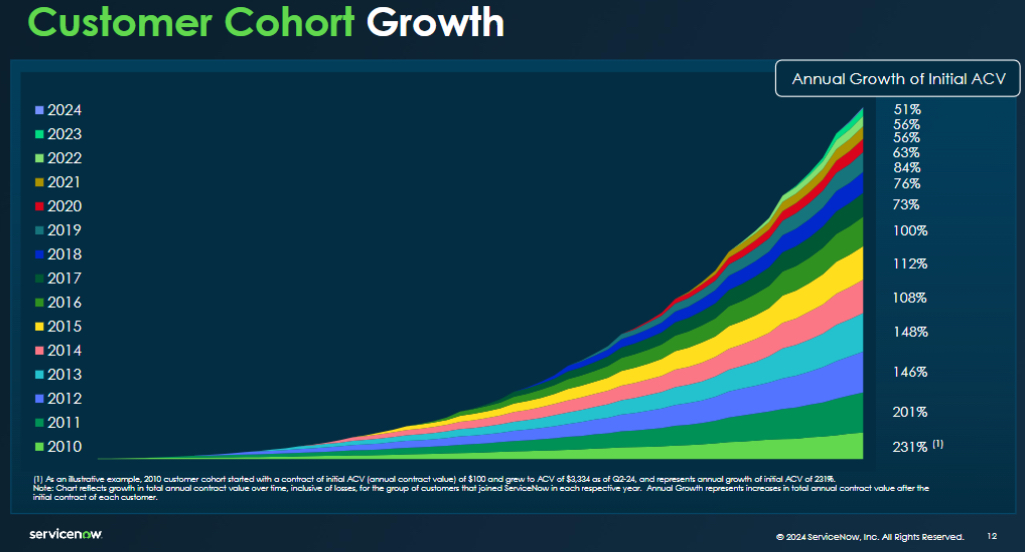
Stop, Think, and Make Big Life Decisions With AI
Plus: The feeling economy
July 28, 2024 · Updated December 17, 2025
Hello, and happy Sunday! In a perfect world, all venture capitalists get along, no one has any beefs, founders are treated with love and respect and not like—oh, look, it's an American bald eagle swooping over the Parisian night sky. Let's just watch the Olympics and get off X.
On to everything we published this week, along with our take on the latest tech and business news.—Kate Lee
Was this newsletter forwarded to you? Sign up to get it in your inbox.
Knowledge base
🔏 "Why AIs Need to Stop and Think Before They Answer" by Michael Taylor/Also True for Humans: If your AI assistant sometimes gives you nonsense output, it's because it has the very human problem of not taking time to think. Chain of thought prompting is like giving ChatGPT a coffee break before it answers your questions. Read this to learn how to make AI slow down and reason through problems, just like humans do.
🎧 "Dwarkesh Patel's Quest to Learn Everything" by Dan Shipper/Chain of Thought: Ever wonder how the smartest podcaster we know preps for interviews with Mark Zuckerberg and Tony Blair? Dwarkesh Patel, host of the Dwarkesh Podcast, is using AI to revolutionize how he reads, learns, and builds a coherent worldview. Watch or listen to this episode of AI & I to see how Dwarkesh uses Claude to become a walking encyclopedia, prep for interviews, and compound his intelligence. 🔏 Paid subscribers have access to the episode transcript.
"AI Can Help You Make Big Life Decisions" by Dan Shipper/Chain of Thought: If you ever wished you had a crystal ball for those big, life-altering choices, Dan has the next best thing: AI. By feeding your thoughts and personality into ChatGPT, you can simulate how future-you might feel about major decisions. Read this if you want to peek through one-way doors without getting stuck on the other side. 🔏 Paid subscribers get access to Dan's actual journal entries and the exact chat that Dan had with Claude to build Every's new prompt tool, Spiral.
"Vibes Are a Legitimate Economic Indicator" by Evan Armstrong/Napkin Math: Kyla Scanlon, the 27-year-old internet economics sensation, argues that "vibes" are the new way to predict market trends. Her debut book, In This Economy?, attempts to explain modern economics to Gen Z, but it's her concept of "vibes" as collective digital-age feelings that steals the show. Read this if you want to understand how the TikTok generation views the economy and why your gut feelings about the market might actually be worth something.
🔏 "Can Anyone Compete With Meta's New AI Model?" by Evan Armstrong/Napkin Math: Meta just released a free AI model that's as good as the ones you're paying for. Mark Zuckerberg's open-source gambit could burst the AI hype bubble—or save it. Read this for a deep dive into the implications of Meta's move and what it means for the future of AI companies (spoiler: It all hinges on GPT-5 being mind-blowing).
Fine tuning
Finally, a good IPO. Onestream, a SaaS application for enterprise finance teams, closed up 34.25% when it went public this week, giving it a market cap of roughly $6.2 billion. The company has strong fundamentals, growing 40 percent year over year. It’s a rarity in the SaaS world—the only public SaaS company with over 35 percent growth.
Open-source AI is ripping. As I wrapped up my piece on Llama 3.1, I noticed that the other major open-source company, Mistral, had released its new frontier model, Mistral Large 2. The benchmarks for all these models are converging, shifting the plane of competition from the LLM’s performance to the ease of integration.
We solved sexism! A new analysis shows the number of American venture capital firms with at least one female partner has doubled to about 18 percent. Female founders also garnered almost 28 percent of total U.S. deal value in 2023. Obviously, we have a ways to go, but this is a remarkably positive change after years of these metrics being essentially flat.
Bezos loves to lose money on expensive women. The Wall Street Journal reported that Amazon has lost over $25 billion on its Alexa line of devices. Hundreds of millions of people have them, but they’re mostly used to set timers rather than as new ways to shop, as Bezos likely hoped.
Two deals, two different versions of software’s future. There is a race going on in every corner of the software market. In the first lane are legacy horizontal or vertical players that spent years building complicated software that automates workflows and captures data, like Salesforce, Adobe, and Microsoft Windows. In lane two are AI startups that are using generative AI to eschew building the complicated software in the first place in favor of automating away the workflows entirely. Two legal software companies that raised money this week exemplified this trend: Clio, the dominant traditional vertical SaaS player that sells workflow software that speeds up lawyers’ workflow, raised a $900 million Series F at a $3 billion valuation (some of the funding will go toward adding in AI), while Harvey, the generative AI legal software player that is obfuscating the need to do some of that work entirely, raised a $100 million series C at a $1.5 billion valuation. It’s a bit of an apples-to-oranges comparison because Clio mostly sells to small businesses and mid-market accounts, while Harvey focuses on big law forms, but the race is still on. Does owning the data confer the advantage (Clio)? Or does creating the AI model (Harvey)? (Disclosure: I previously worked at a competitor to both of these firms.)
Alphabet earnings are short-term down, long-term up? Quarterly earnings release season is another reminder that big tech companies are just so damn big. The magnificent 7 (Alphabet, Amazon, Apple, Meta, Microsoft, Nvidia, and Tesla) are of such a size that it is easy to forget. Part of the reason these companies are so big is that the internet enlarged the scope of markets, an underrated component is that their management teams are stellar. They’ve shown the ability to stomach losses and failure to a degree that most public executives can’t. Clayton Christensen’s disruption theory was so imprinted into their psyche that they are willing to spend big to ensure it doesn’t happen to them. Speaking of which:
- Alphabet announced another $5 billion in investment in Waymo, which is doing 50,000 paid trips a week between San Francisco and Phoenix. The business unit is housed in the “other bets” division of Alphabet, which had $365 million in revenue, up from $285 million last year, and a $1.13 billion loss, up from $813 million. It is safe to say that while the unit economics aren’t yet perfect for Waymo, scale will get it there.
- YouTube is the world's most valuable entertainment asset. The division’s ad revenue grew 13 percent year over year, to $8.66 billion, slightly less than expectations. For time spent watching, it is more popular than Prime Video, Hulu, and Disney+ combined. Aggregators of attention offering free products remain dominant.
- Google Cloud grew 29 percent year over year, to $10.35 billion in revenue, with $1 billion in operating profit.
- Finally, the big daddy of search pulled in $48.5 billion in revenue.
Overall, the company grew 29 percent year over year, to $84.7 billion in revenue—$85 billion dollars in just three months! In one quarter Google earned more than the GDP of Luxembourg. To achieve that while still growing at 30 percent is beyond comprehension, yet the stock was subsequently down 5 percent on the backs of a miss in revenue for YouTube and uncertain ROIs for the generative AI spend.—Evan Armstrong
Data mining
Land and expand. At least one software company has a plan for how it invests in generative AI. ServiceNow, a process automation and IT ticketing platform, has an impressive track record of landing sticky enterprise clients and expanding those relationships over time:
Source: ServiceNow.ServiceNow’s longest-tenured clients have more than doubled their annual spend with the company over the past decade-plus, and even those of the most recent vintage are already spending 51 percent more than when they started. That’s the dictionary definition of “land-and-expand” an enterprise sale. The company reported doubling revenue since last quarter alone on its generative AI platform, with at least 11 contracts of greater than $1 million annual value. The generative AI offering (called the Now Platform) is fairly new and comprises a small fraction of the company’s overall revenue, but if it doubles every quarter, that revenue will compound very quickly. Obviously, there’s a long way to go before declaring generative AI a commercial success, but with every executive team eager to “do something AI,” process automation is a natural place to start. If ServiceNow succeeds in demonstrating value, it could be one of the first SaaS winners of the AI race—and a bellwether of what’s to come.—Moses Sternstein
Alignment
Communication misfire. Prompt Engineering for Generative AI by Every columnist Mike Taylor and James Phoenix has become one of my most trusted blueprints for effective people management. Prompting AI and managing workers are surprisingly similar. Both require the need to provide context and concrete examples of successful outcomes, and set clear expectations. When I started applying some of the AI prompting principles to interactions with my team, I saw immediate improvements. Projects that once floundered without scope or defined objectives now ran like well-oiled machines. Deliverables exceeded expectations, and the clarity in our communication rippled through the entire workflow. Before sending any task or project brief to your team, run it through this clarity filter with ChatGPT: "Would this instruction be clear enough for ChatGPT to get the output I wanted?" If your instructions aren't specific and contextual enough for an AI to produce the desired output, they're likely not clear enough for your team, either. —Ashwin Sharma
Collaborative filtering
Work with us at Every. We’re hiring for two roles:
General manager of Spiral: We’re looking for someone to helm Spiral and make our AI prompt builder the future of content creation. You have founding experience and a founder mindset, and/or have done early-stage product development. You’re a multidisciplinary, internet-native product engineer who cares about user experience, and you’re excited to talk to Spiral’s users and build solutions for them yourself (alongside our engineers and designers). You like to read and write and are passionate about communicating your ideas. You think solopreneurship is awesome and fundraising is a strategic tool to be used sparingly, and you’re eager to turn Spiral into a content machine. This is an equity position with a profit share. If you’re interested, email Brandon Gell at [email protected] with your LinkedIn profile and why you’re a good fit for this role.
Social media consultant: Be the voice of Every on social media. You’ll define Every’s voice on X and LinkedIn, experiment and test formats to determine what resonates with our audience, and build templates for scaling social content creation using Spiral. You’re tuned in to the online tech conversation and have a keen sense of the most interesting nuggets from a story, excellent writing skills, and knowledge of Figma and AI tools. You should move fast, be scrappy, and—most of all—love Every. If you’re interested, email Kate Lee at [email protected] with your LinkedIn profile and why you’d like to join us.
Hallucination
What if Apple offered its own phone and data services?
Source: X/Lucas Crespo.That’s all for this week! Be sure to follow Every on X at @every and on LinkedIn.
The Only Subscription
You Need to
Stay at the
Edge of AI
The essential toolkit for those shaping the future
"This might be the best value you
can get from an AI subscription."
- Jay S.
Join 100,000+ leaders, builders, and innovators

Email address
Already have an account? Sign in
What is included in a subscription?
Daily insights from AI pioneers + early access to powerful AI tools









.png)

Comments
Don't have an account? Sign up!